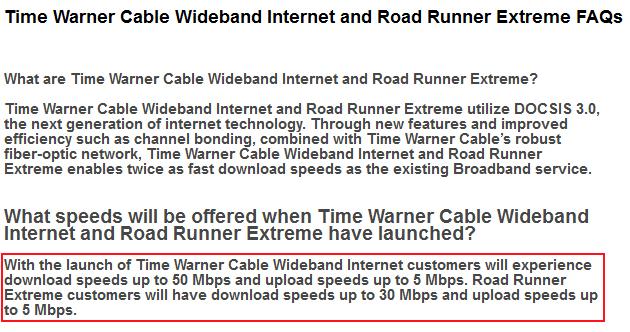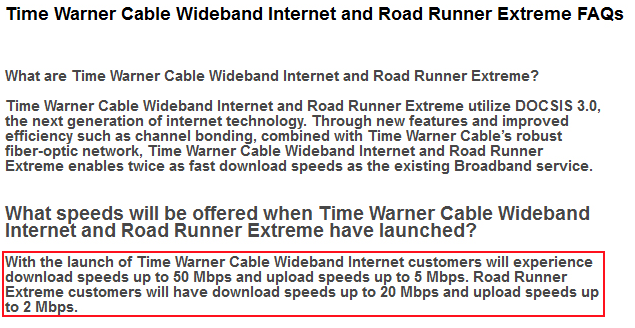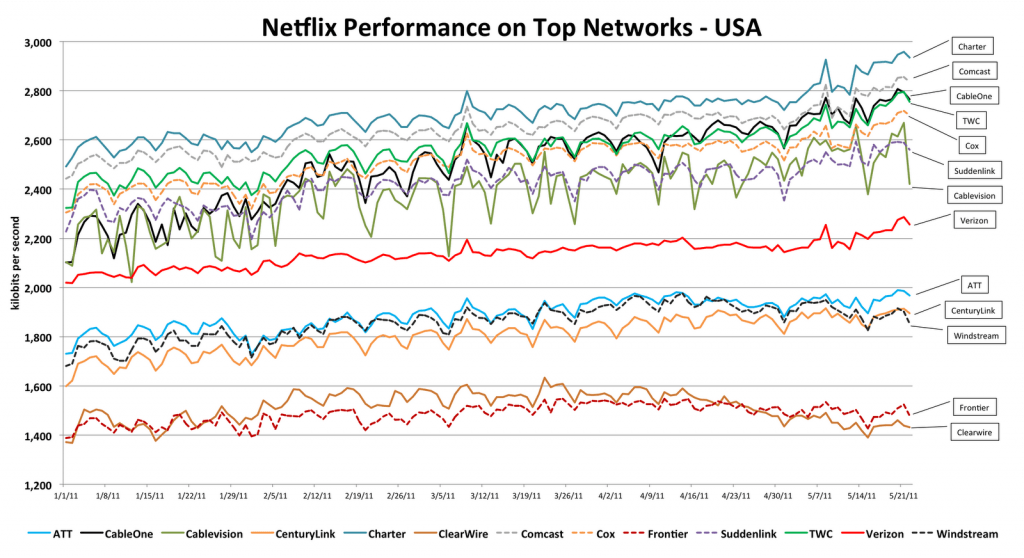 Time Warner Cable customers in Austin, Tex. excited to learn DOCSIS 3 speed upgrades have finally arrived in the state capital are less than thrilled to learn the rug has been pulled out from under some of the high speeds the company was promising customers just one week earlier.
Time Warner Cable customers in Austin, Tex. excited to learn DOCSIS 3 speed upgrades have finally arrived in the state capital are less than thrilled to learn the rug has been pulled out from under some of the high speeds the company was promising customers just one week earlier.
At issue is Road Runner Extreme, the DOCSIS 3 upgrade that delivers faster speeds at a “sweet spot” price of just $10 more than Road Runner Turbo. In most Time Warner Cable markets, Road Runner Extreme delivers 30/5Mbps service, and so it was to be for Austin customers as well:
But Broadband Reports reader “SunnysGlimps,” who signed up for Extreme expecting those speeds, discovered “bait and switch” broadband instead, as the resulting speed test (and subsequent advertising) showed a much less impressive 20/2Mbps result.
“I was actually getting faster speeds with the Turbo then I am now with the capped Extreme package,” says Sunnysglimps. “My speed clearly hits a cap when it goes to 20/2Mbps on speedtest.net.”
This reader feels Time Warner Cable is engaged in false advertising in Austin.
“You cannot advertise 30/5Mbps, sell the service, charge more, and then change your advertising a few days later and say it won’t be what you just purchased.”


 Subscribe
Subscribe





